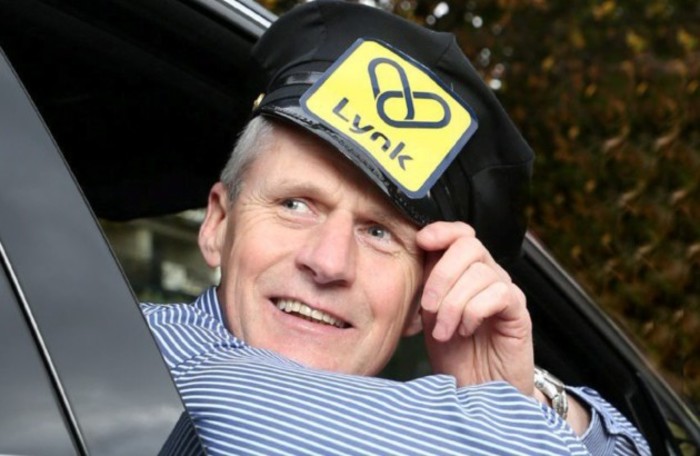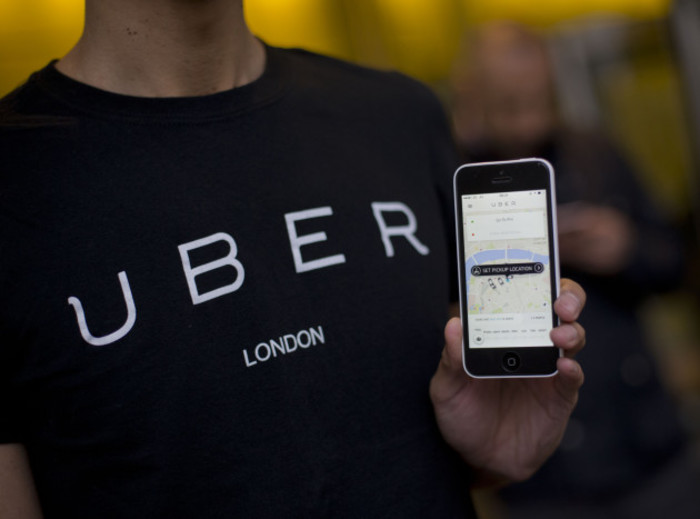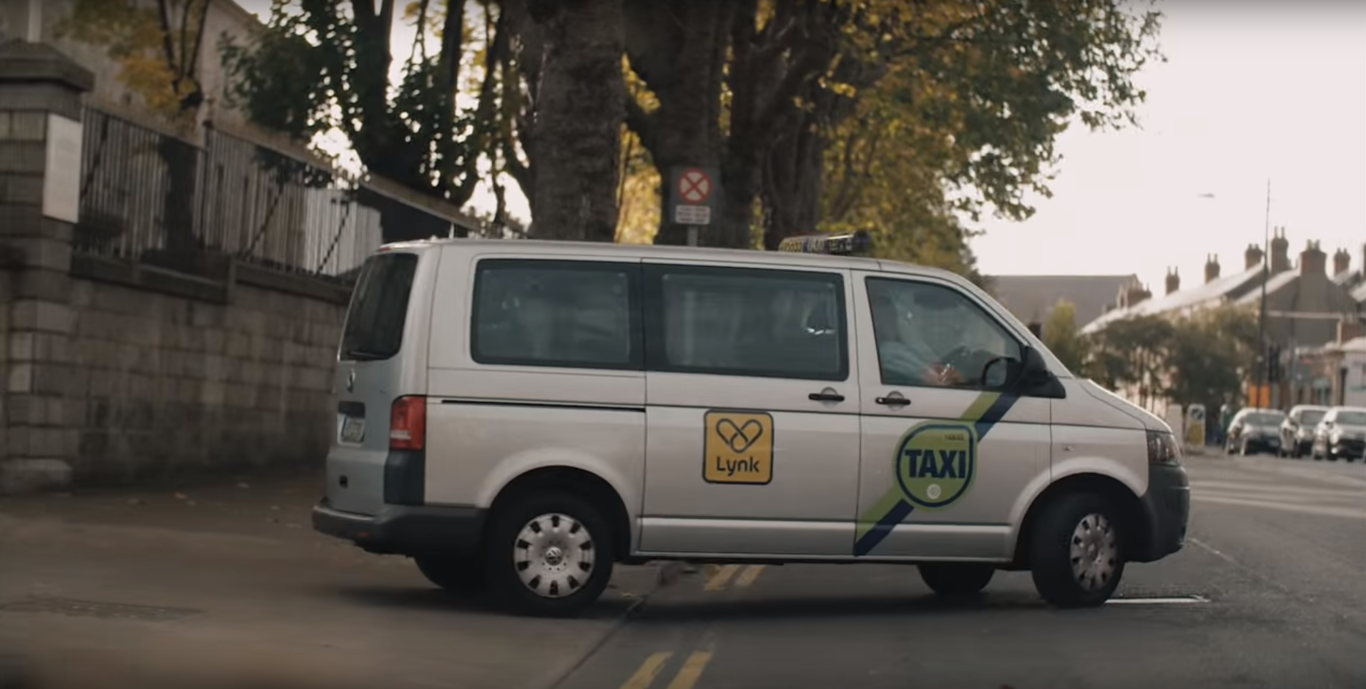Lynk is making its big global play - but you might not recognise it when it does
The taxi-booking app will go through a re-brand as it heads for the UK and US markets.
IRISH TAXI APP Lynk is about to push into the UK market before backing that up with a move to the US. But it may not be instantly recognisable to local users by the time it arrives there.
Instead of the familiar name seen on Dublin cabs since Lynk’s launch in February last year, the company will get a re-brand in both countries as ‘Riide’ after the intervention of some PR consultants.
“I’m not sure what the thinking is, they think Lynk is too common a name in IT circles,” CEO and founder Noel Ebbs told Fora.
The company already has around 12,500 drivers signed up to its network in the UK ahead of its launch in the market this summer, although it will be going live there around six months later than initially planned. A further Irish rollout in Cork, Limerick, Waterford, Galway and Belfast is also underway.
Those moves will be followed with a big pitch for the US east coast, where it has 5,000 drivers signed up in Washington, New York and Boston, late this year or early in 2017, assuming all goes to plan.
However unlike its very deep-pocketed competitors in the international markets, including the famously combative Uber, Lynk is not planning to spend hundreds of millions buying up a share of the car-hailing market.
“We feel there’s another way to do this, the market is already there – it doesn’t need to be reinvented. It just needs to be updated,” Ebbs said.
 Lynk founder Noel Ebbs
Lynk founder Noel Ebbs
The competition
The company’s budget for launch in the UK will be €12.5 million over the coming year and it claims a ready-made customer network of 1 million, based on its back-end software already being installed with taxi providers.
Lynk also differs from competitors in the taxi-booking space, and both here and in the UK the big one is Hailo, in the people it targets and how it makes its money.
Rather than taking a cut of each journey booked through its app, which would come out of the individual driver’s share, Lynk charges taxi companies or drivers’ co-ops a membership or licensing fee for use of its software.
It is also focused on corporate customers with its new ‘Lynk for business’ offering, which promises extra bells and whistles like the ability to provide firms with shared taxis across disparate parts of their company networks.
So if, for example, several employees from separate departments in one large firm are unwittingly heading to the airport at similar times, Lynk’s software can cut costs by coordinate their bookings to put them in the same car, Ebbs said.
“We have a very, very simple model. The rollout is very simple – what’s allowing us to do this so cheaply is that we can roll out to existing taxi businesses that are there, but that have no way of challenging the major international apps. But now they do.”
 Uber has been causing major headaches for taxi companies
Uber has been causing major headaches for taxi companies
The taxi-sharing feature puts Lynk in the same hunting ground as the billion-dollar apps, although with the potential cost burden of providing its service in a metered, regulated cab – rather than a cheaper private car from a provider like Uber.
However, in Europe at least, Ebbs said he doesn’t see a major threat to licensed taxi services from what he calls the ‘grey market’.
“It’s very different to the US, where it was the perfect storm for that (ridesharing) business model. We have very strong regulations here – like it or not, we’re Europeans, we like our rules and we like our boundaries. We’ve grown up in an EU environment where even the shape of a banana is regulated.”
 London cabbies protest against Uber
London cabbies protest against Uber
Back in Ireland
Meanwhile back in Ireland, Lynk has delivered 2 million trips and has a network of 2,500 taxis. That still makes it a relatively small player compared to Hailo, which said it recorded 5 million trips last year.
The company behind Lynk, Net Global Taxis, which ran the Global Taxis brand, was already profitable before the app-based service was launched, its accounts show.
While it is yet to file paperwork for the period since last February, Ebbs said he expected to make “a small profit” this year. The company is also expected to beef up its headcount, which includes 70 staff in Dublin, around 140 in the UK and smaller number in the US.
Ebbs said Lynk had enough funding to fuel its growth into the first half of next year, although after mid-2017 he expected to need a financial kick-start to keep going.
“It’s a really exciting time for us; it’s about six months late, but better late than never,” he said.






